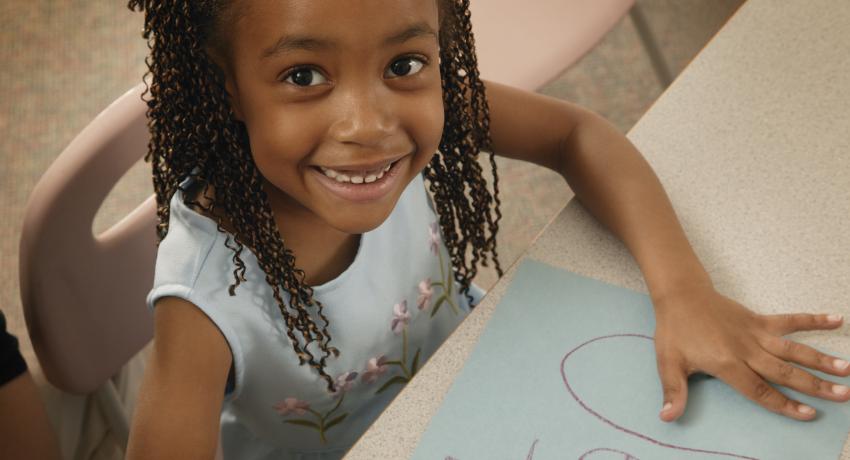A new legislative session began in January, and the Washington State Department of Children, Youth, and Families is building upon our Fair Start for Kids Act momentum to create an increasingly integrated child care and early learning system from birth to age 8. The system we envision expands access and provides resources to support early learning providers, the workforce, children, and families.
Below are Child Care and Early Learning requests currently under consideration by the legislature:
Child Care and Early Learning Requests:
Supporting Providers for Child Care Access – Early Childhood Equity Grants: $18.690M, Child Care Complex Needs Fund: $15.369M
Access to high-quality child care is limited by structural constraints on providers. Expansion of the Child Care Complex Needs Fund and Early Childhood Equity Grants would provide targeted supports to make it feasible for providers to serve specific populations of children and to meet needs of providers to support inclusive -- and culturally and linguistically specific-- early learning, early childhood and parent-oriented programs across the state. View our fact sheet for more detail.
Making Child Care Work for Families - $908,000
This request would support families experiencing homelessness with continued access to child care subsidy throughout the time they meet the McKinney Vento Homeless Assistance Act definition of homelessness. View our fact sheet for more detail.
Working Connections Child Care Rate Increases - $270.83M (Of total, $121.648M funded in Collective Bargaining Agreement)
We are seeking funds to increase child care provider subsidy rates and modify the co-pay schedule for families in order to meet mandates of the Fair Start for Kids Act. This funding would increase subsidy rates to the 85th percentile of the 2021 market rate study (a study of what providers charge families in Washington), and keep family copays under 7% of gross family income. The proposal also includes a Fair Start for Kids Act mandated copay increase for families in the 50-60% range of the State Median Income range, to $165. View our fact sheet for more detail.
Family Child Care 925 Collective Bargaining Agreement - $231.165M
The negotiated agreement that now goes to the legislature includes an 85 cent per hour per child rate increase for Family, Friends, and Neighbor providers beginning July 1, 2023, and a 15 cent per hour per child rate increase on July 1, 2024. Also included is an increase to subsidy base rates to the 85th percentile of market.1 DCYF is also seeking funds for the department to pay the background check application and fingerprint processing fees for family homes, and for a cost-of-care rate enhancement that would help more family home providers make ends meet.
Preparing for Early Childhood Education and Assistance Program Entitlement – ECEAP Complex Needs: $11.084M, Rates: $107.026M, Expansion: $83.583M
DCYF is seeking increased investments to continue building a flexible, responsive, robust system that better supports ECEAP and other early learning providers to meet entitlement. The request for funding includes rate increases for school-day and working-day slots, and an additional 4,000 new slots, with 85 percent allotted for school day and 15 percent allotted for working day hours. The request will also expand the ECEAP Complex Needs Fund.
Organizational License Pilot Continuation - $368K
Current licensing processes make it difficult for organizations with multiple child care center and school-age sites to license and maintain new programs. The 2021-23 operating budget funded two years of a pilot project to determine the feasibility of a child care license for multi-site programs. This proposal requests a third pilot year to complete the testing of this new license process, and an additional year for implementation. This work will include scaling the license type and developing trainings for licensors and providers, outreach materials, and Information Technology system integration.
Culturally Relevant Language Access Program - $3.13M
DCYF is seeking infrastructure funding to implement improvements to how DCYF supports the language access needs of all providers and clients. Funds would implement an enterprise-level language access plan (and improve how federal language access requirements are met). This would include a website translation project, Language Coordinators, a Language Access Program manager, community engagement and communications support, language-specific early learning specialists, data analysis and reporting, and staff training.
Early Learning Facilities (ELF) Fund Expansion, via the State Capital budget.
Early Learning Facilities Grant: $40M, non-Expansion: $5M
The agency is seeking additional resources for the Early Learning Facilities program, to help ECEAP contractors and WCCC providers expand, remodel, purchase, or construct early learning facilities and classrooms to support early learning opportunities for children from low-income households. We have submitted a decision package on behalf of the Washington State Department of Commerce.
To learn more about our legislative requests, please visit our Government Affairs webpage.
[1] This amount is also reflected in the WCCC rate section above.

